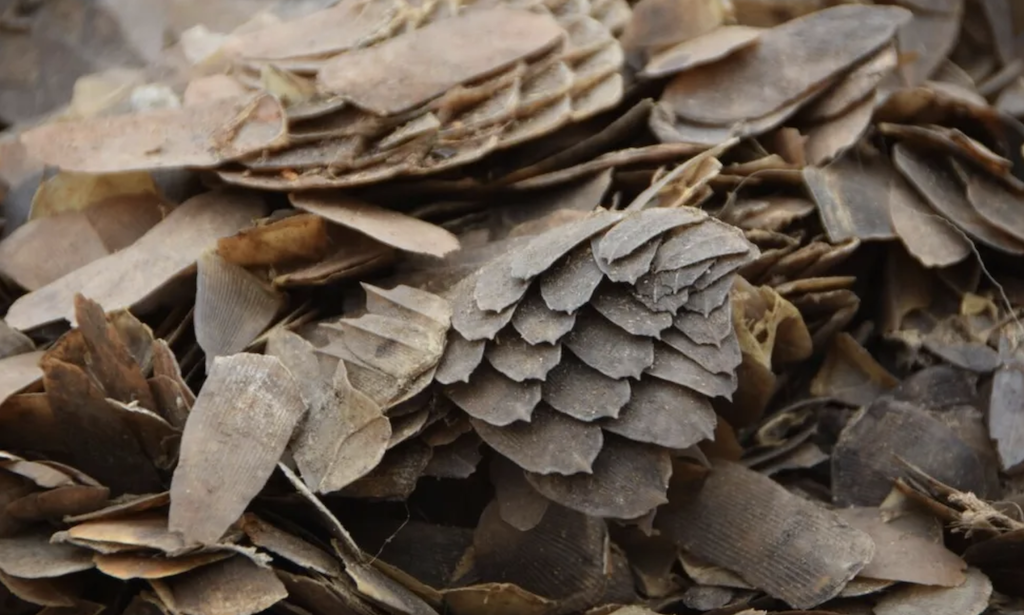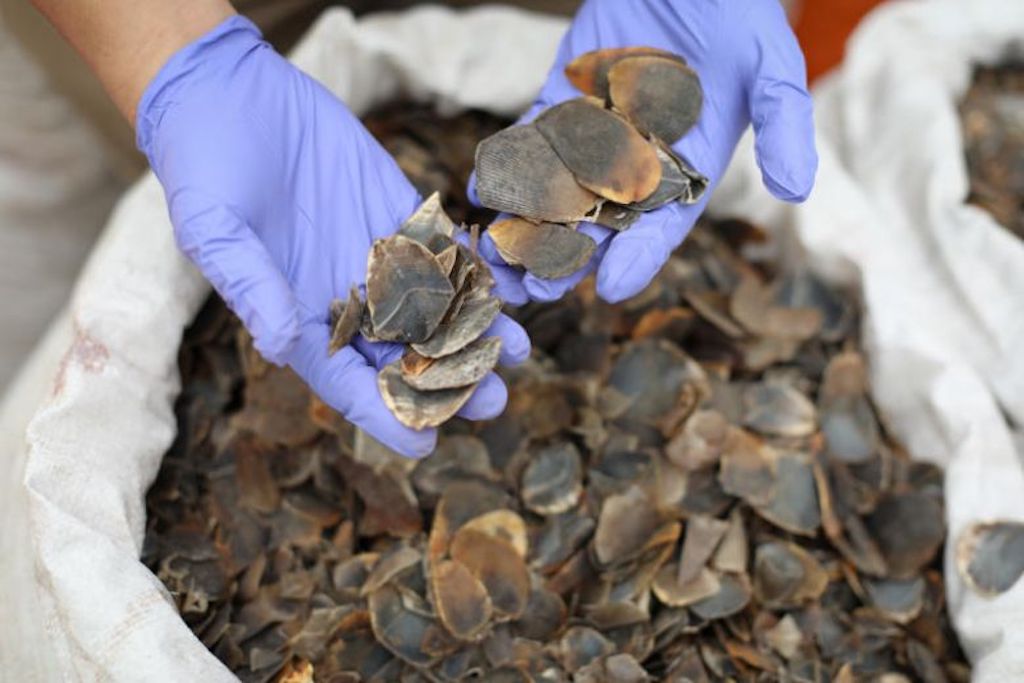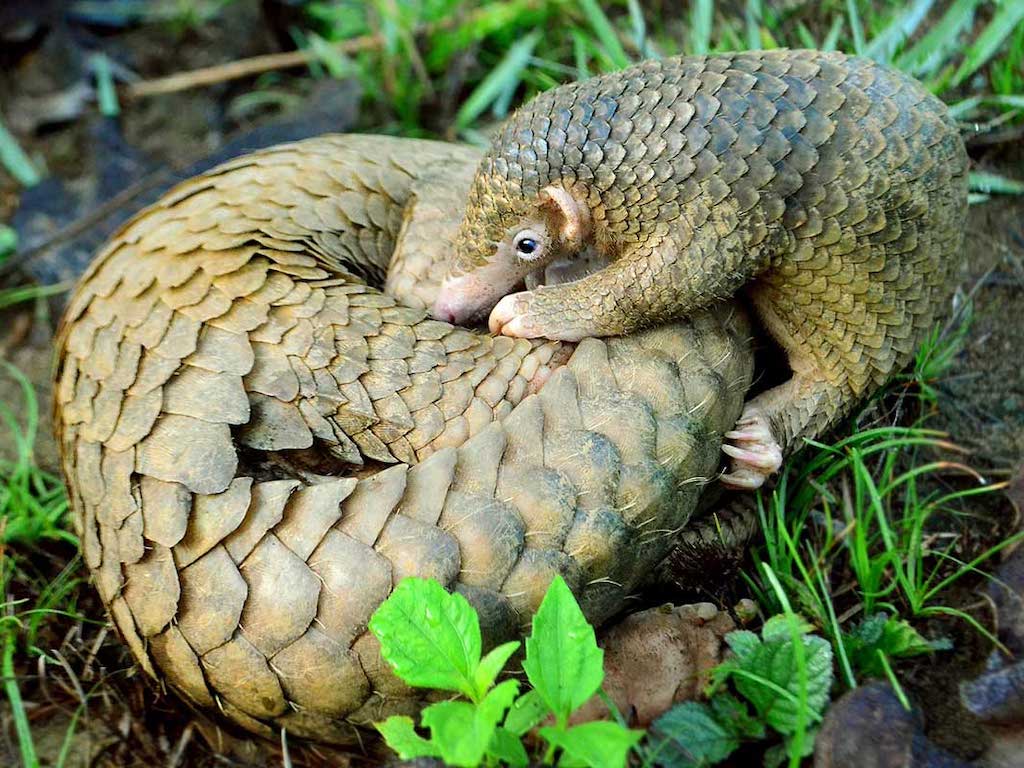4 Mins Read
Update (July 2): This article has been updated to reflect that while China’s 2020 pharmacopoeia has removed pangolins from the key traditional Chinese medicine list, it is still included as an ingredient in several listed patent medicines formulas.
The scales of pangolins, the world’s most trafficked mammal, has just been removed from the official traditional medicine list under China’s national guidelines. Conservation groups are hailing the move as a key step in combating the illegal trade of the scaly anteater, which has come under the spotlight in recent months for its potential role in the coronavirus outbreak. But key questions remain about the efficacy of the delisting to fully stamp out the illicit pangolin trade, as well as the country’s contradictory efforts to promote traditional medicines that contain other wild animal species.
Pangolin scales have been taken off China’s 2020 official list of ingredients approved for use in traditional Chinese medicine. All eight species of pangolin are protected under international law, with three pangolin species native to Asia already listed as critically endangered under the IUCN. This includes the Chinese pangolin, which is now considered functionally extinct.
The news was originally reported by Chinese state media Health Times, and comes shortly after the country’s forestry ministry elevated the protection status of pangolins to Class 1, the highest conservation level also enjoyed by pandas. It is important to note that, however, that while pangolins have been officially been removed from the main traditional Chinese medicine list, they remain included as an ingredient in several listed medicine formulas in the guidelines.
In February, China decided to permanently shut down the wildlife industry, though exemptions for medicinal purposes, fur and leather industries remain, allowing the loophole to flourish online. The move was prompted by the coronavirus outbreak, which is widely believed to have originated from bats and transmitted to humans via an intermediary host animal involved in the illicit wildlife trade.

Pangolins have come under particular spotlight because they have been found to carry a strain of coronavirus similar to one that causes Covid-19. Though no conclusions have been made, some studies believe that pangolins could have enabled the virus that caused the current pandemic to spread.
According to conservation organisation WildAid, as many as 200,000 pangolins are trafficked each year.
While pangolin meat is consumed in some parts of China and Vietnam, pangolins are predominantly traded for its scales for traditional medicinal purposes, fetching high prices and contributing a sizable portion to China’s US$74 billion wildlife trade.
Conservationist groups and animal welfare activists have hailed the move as a major step forward. Steve Blake, the chief representative of WildAid in Beijing, told the Guardian: “We highly applaud this announcement, made in recognition of the need to protect critically endangered pangolins.”
Others, while encouraged, warn that there is still work to be done to fully stamp out the trade. Zhou Jinfeng, secretary general of the China Biodiversity Conservation and Green Development Foundation, told the paper that there is “a long way to go”, saying that captive breeding and medicinal research related to pangolins will still be an issue.

Currently, the Chinese state forestry ministry still hands out permits to traditional Chinese medicine pharmaceutical companies for using parts from “old stockpiles” and “farmed” wildlife, a practice that keeps the illegal trafficking of animals going.
In addition, although China has taken pangolin scales from the list, it has taken the contradictory decision to promote another form of wildlife trade relating to bear bile. In March, the country’s National Health Commission recommended using an injection that contains bear bile to treat coronavirus patients. There is no evidence that it is effective for treating coronavirus.
Experts have reiterated that without a full shutdown of the illicit wildlife trade as well as greater regulation over the wider animal livestock industry, public health dangers will continue to exist and may become deadlier over time.
Read our earlier news coverage of Covid-19 here and more news on animal rights here.
Lead image courtesy of Gregg Yan / Creative Commons.




